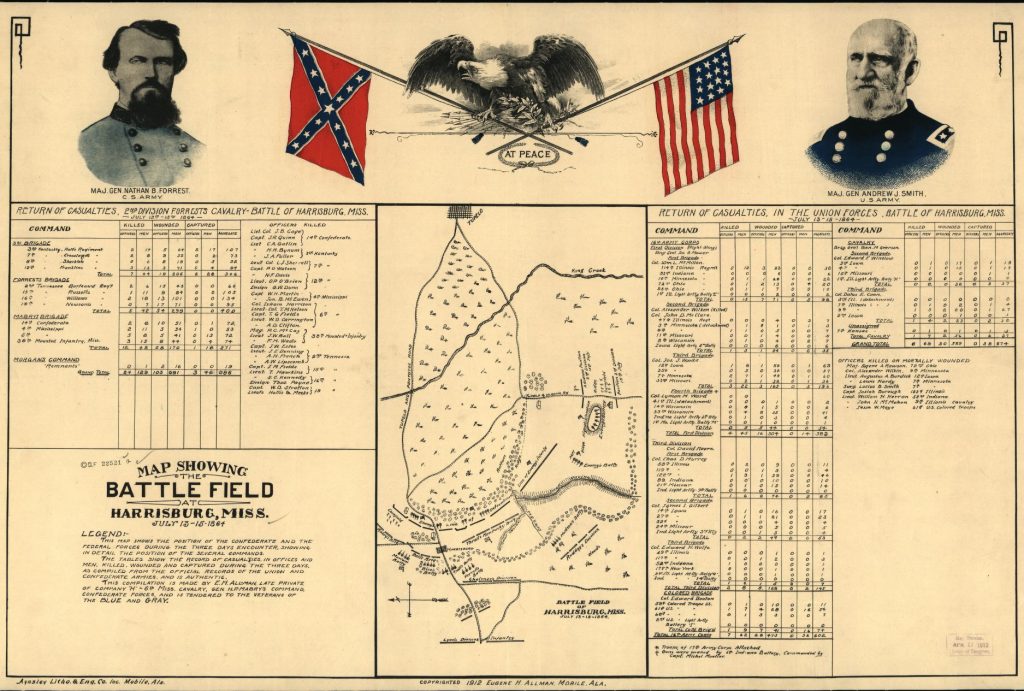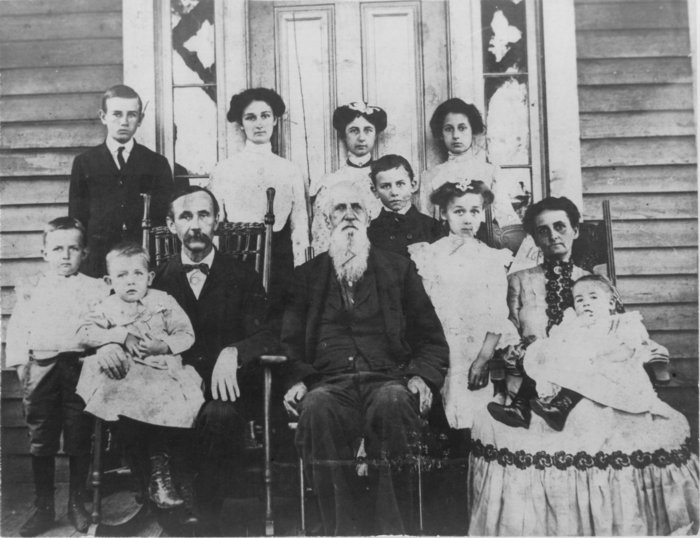James Everett was born to Thomas and Nancy Ann Felder Everett on December 2, 1830. Prosperous slaveholders who migrated to Amite County, Mississippi from South Carolina, the Everetts owned thirteen slaves in 1830 and would acquire thirteen more during the next thirty years. Thomas was one of three brothers who established plantations stretching from Amite County, Mississippi to Avoyelles Parish, Louisiana. When he died in 1858, he left his wife and eight children a plantation worth $42,000 (the equivalent of just over a million dollars in 2016).
When the Civil War began, James Everett was a twenty-nine-year-old overseer on his family’s plantation. Of the five sons born to the Everett clan, four would serve in the Confederate Army. During the heady days of April 1861, James Everett married Sarah Elizabeth Garner and enlisted in the 22nd Mississippi Infantry; however, he was medically discharged the following October when it became apparent he had asthma.

In 1862, James reenlisted in the army. This time he signed up to serve alongside his brothers Alexander (30) and Charles (16). The Everetts were assigned to Company I of the 4th Mississippi Cavalry, which was comprised of men from Amite, Wilkinson, Pike, and Franklin counties. The brothers fought side by side during skirmishes around Port Hudson and against General William T. Sherman’s march from Vicksburg to Meridian.
At some point during the fighting in northern Mississippi in late 1863 and early 1864, Marshall Everett joined his older brothers and the 4th Mississippi Cavalry. Since the seventeen-year-old Marshall does not have his own service record, he may have never officially enlisted in the Confederate army. Nevertheless, the young man accompanied his brothers to Harrisburg, Mississippi, where they attacked the U.S. Army’s fortified line south of the city on July 14, 1864. The uncoordinated rebel assault was ultimately repulsed and six men of the 4th Mississippi were killed that morning. Among the dead was Marshall Everett, whose body was returned to Amite County and buried in the family cemetery.

The remaining Everett men remained with their regiment until the end of the war. On November 4-5, 1864, they were part of General Nathan Bedford Forrest’s successful raid of a U.S. supply depot in Johnsonville, Tennessee. The attack destroyed millions of dollars worth of equiptment, including four gunboats, fourteen transport vessels, twenty barges, and twenty-six artillery pieces. Eventually, the men surrendered with their command in Gainesville, Alabama, on May 12, 1865.
After the war, James Everett returned to his wife and young daughter (Lula) and began farming in Amite County. Like much of the slaveholding class, the Everetts’s experienced significant financial losses due to the abolition of slavery and sinking cotton prices. By 1870, the combined value of the family’s holdings totaled up to $3,824—over $38,000 less than what they had a decade before. Still, they enjoyed a level of wealth that was significantly higher than many of their neighbors.
James Everett remained in the county until his wife’s death in 1889. Then sixty-nine years old and unable to work, he moved into his brother-in-law’s home in Little Springs, Mississippi and applied for a Confederate veteran’s pension. Citing the case of asthma he contracted while in the infantry in 1861, the state offered him $25 a year.

In 1899, Amite County Sherriff J. B. Turnipseed auctioned off the James Everett’s property to pay for delinquent taxes, and the state approved his second pension application for $780 per annum in 1900. Everett moved into the Jefferson Davis Soldiers’ Home at Beauvoir on January 14, 1907, and lived there until he died twelve years later. He is buried on the grounds of the home.
Lead author: Allan Branstiter, Southern Miss history doctoral candidate. Lead researcher: Southern Miss History major Rebecca Applewhite.
